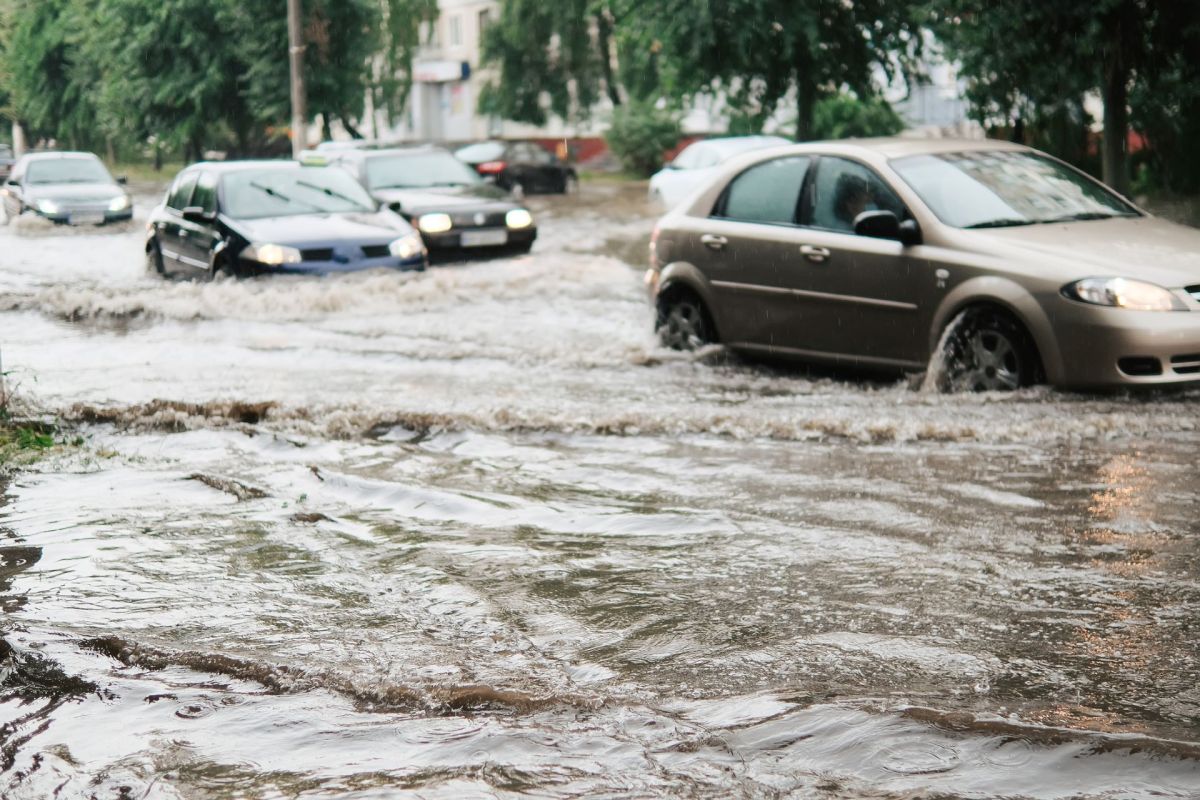One common misconception about the effects of our overheating planet is that warmer average temperatures will make the world drier.
Though this is true in some parts of the world, it isn't true everywhere. In fact, many regions are experiencing unprecedented and highly destructive precipitation events.
To better understand the connection between rising average global temperatures and wetter conditions, it's helpful to think of the air in our atmosphere as a giant, water-holding sponge.
The sponge metaphor
This thinking — that the Earth's atmospheric "sponge" is constantly growing — can help explain why the overheating of our planet intensifies the amount of rain that falls during hurricanes, precipitation, and related events like floods and mudslides.
The warmer the air, the bigger the sponge. The bigger the sponge, the more water it can hold. And the more water it holds, the more that gets released when weather events like hurricanes empty its contents.
The science behind it
The water soaked up and held by the sponge (as water vapor) comes from water evaporating off oceans, lakes, rivers, plants, rainfall, and other water sources on Earth's surface.
Warm water will evaporate faster than cold water because hotter particles move at a higher speed, meaning there is a higher chance that the particles are moving fast enough to escape to the gas phase and become water vapor — a process known as evaporation.
"A warmer atmosphere can hold more water vapor [than a cooler atmosphere], and an atmosphere with more water vapor can make more precipitation," Deke Arndt, chief of the National Centers For Environmental Information's Climatic Science and Services Division, explained in a news release.
At a constant warm temperature, the air can only hold so much water vapor before condensation of these particles creates clouds. Eventually, droplets will fall from the clouds as precipitation — and the water will be wrung out from the "sponge" looming overhead.
How this affects us today
For each degree Celsius (1.8 degrees Fahrenheit) of warming Earth endures, the air's capacity for water vapor goes up by about 7%. And being that the 10 warmest years in the historical record have all occurred since 2010, it makes sense that for many areas, the rain feels more intense than ever.
Data from the EPA indicate that more precipitation is occurring in shorter and more intense intervals, with nine of the top 10 years for extreme one-day precipitation events occurring since 1996. In 2022 alone, we saw five instances of 1,000-year floods within five weeks across the U.S.
"[Precipitation and flash floods are] not just beating a historical record by a marginal amount, but just completely blowing right past it and then some," Daniel Swain, a climate scientist at the University of California at Los Angeles, told the Washington Post.
What we can do
As time goes on, the sponge will only continue to expand and hold more water, resulting in devastating precipitation events — that is, if we don't take action to slow the overheating of our planet.
These actions can be as small as reducing the amount of food waste that ends up in landfills by using produce before it spoils to cleaning your appliances so they run more efficiently. Or, they can be as big as swapping dirty energy appliances for cleaner alternatives or investing in a solar panel system for your home.
The easiest thing — and one of the most impactful things — you can do is talk with your friends, family, and community members about the overheating of our planet and the decisions we can make to mitigate further overheating.
To keep you and your loved ones safe, it's critical to prepare for and stay up to date on heavy precipitation and flood events, especially in parts of the country that experience hurricanes. Make sure you have water, food, first aid supplies, and an evacuation plan if this is a feasible option.
Join our free newsletter for cool news and cool tips that make it easy to help yourself while helping the planet.









